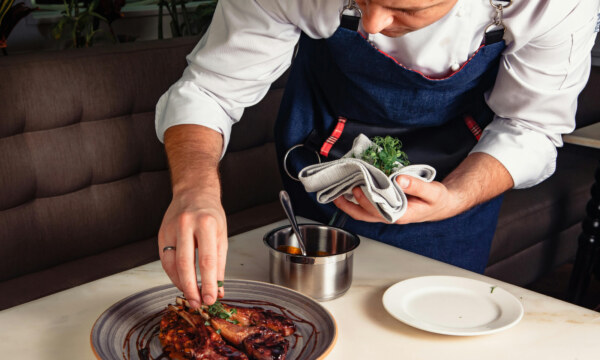How to lead a more eco-friendly and ethical life

It’s easy to look at the impending storm of climate change and feel helpless, as if your own input is simply an insignificant drop in the ocean. This is simply not true. Statistics have shown that the evolving daily and dietary habits of the millennial generation have already led to significant societal changes, proving that our individual actions create a domino effect that could have a huge and lasting impact on the future of our planet. Here are some tips to get you started – and don’t forget to spread the word.
Food
You don’t have to go full vegan in order to help the environment – if you don’t fancy letting go of meat and dairy, there are less drastic ways to do your bit. Even just reducing the amount of meat you consume (beef, in particular, which has a high carbon footprint) will have a big impact. Studies have shown that there has been a huge increase in “flexitarian” lifestyles in the UK, and supermarkets have subsequently begun to stock more and more alternatives. Try cooking vegetarian food a few days a week; there are endless flavoursome recipes to be found online and meat substitutes are at their peak. If you are an insatiable carnivore or you come from a traditional meat-and-two-veg kind of family, you can still participate by making sure you buy ethically farmed produce.
Waste
Waste not, want not. It’s a saying as old as time but it’s even more pertinent today with the effects of global warming ever more prominent. This mantra is important when it comes to food – don’t buy more than you need as supermarkets stock to fill consumer demand. But it’s also true of everything else you buy. Before you throw away a box or a bottle, see if you can reuse it or repurpose it in some other way. There are all kinds of inspirational ideas to be found online – nowadays there’s an app or website for everything: from Facebook to Instagram – or if you fancy being creative, you can share your own designs too. Of course, trying to buy products in recyclable or biodegradable packaging is preferable to prevent anything going to landfill, but in short, the longer the life of an object, the better.
Fashion
The principle of reusing materials extends to fashion. Before you take a trip to the shops, try repurposing your old clothes. With the cyclical nature of fashion and the current renaissance of vintage styles, what was out of fashion a few years ago may well be back in – you might even find something in your parents’ wardrobe that wouldn’t be out of place on today’s catwalk. Alternatively, you might be able to layer an old item, modify it or wear it in a different way to give it new life. If you have clothes that don’t fit or you can no longer use, send them to the charity shop to be sold on or used as scraps. For those who want to go a step further, it’s worth checking out Oxfam’s new campaign, Second Hand September.
The editorial unit

























Facebook
Twitter
Instagram
YouTube
RSS